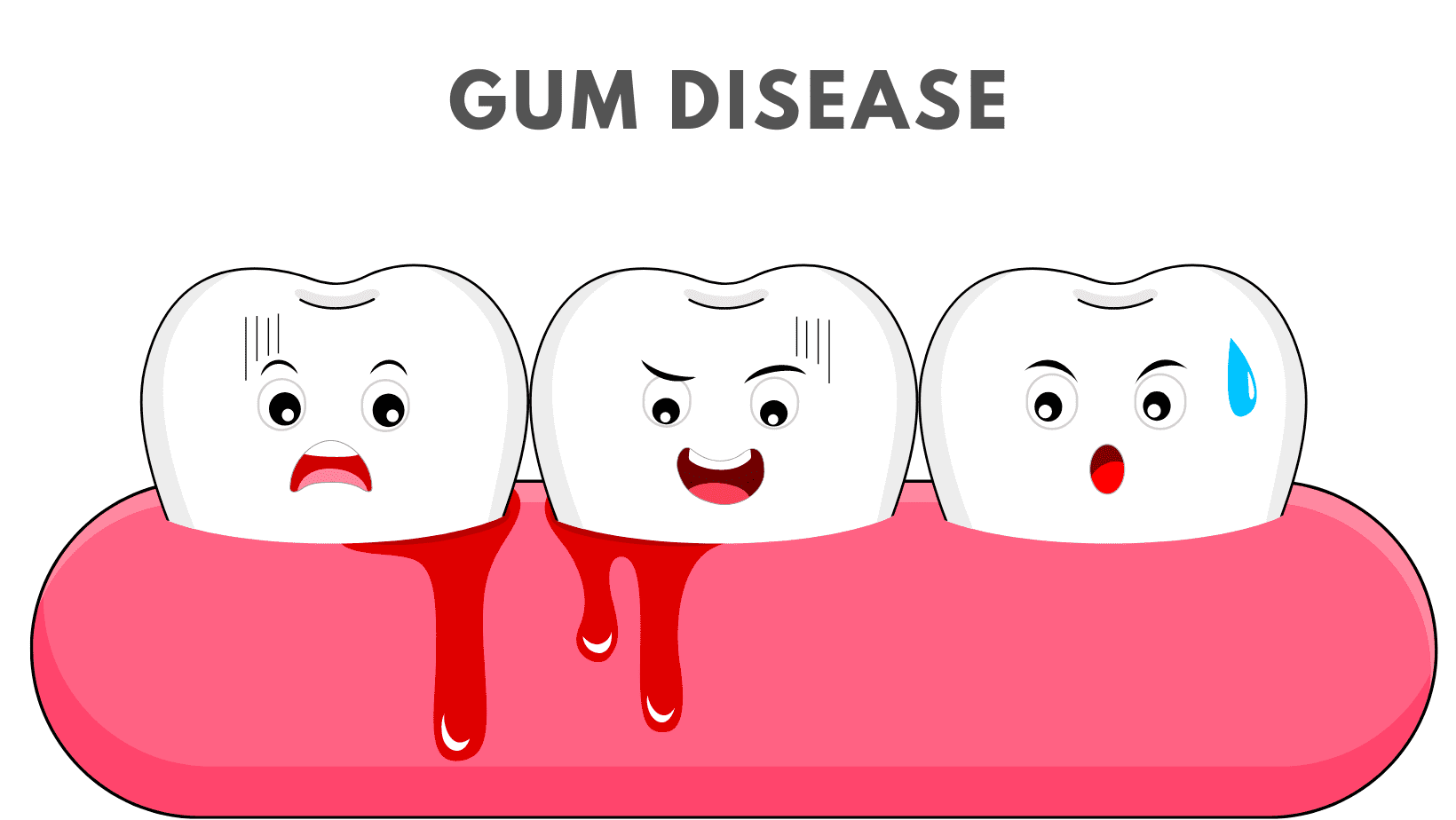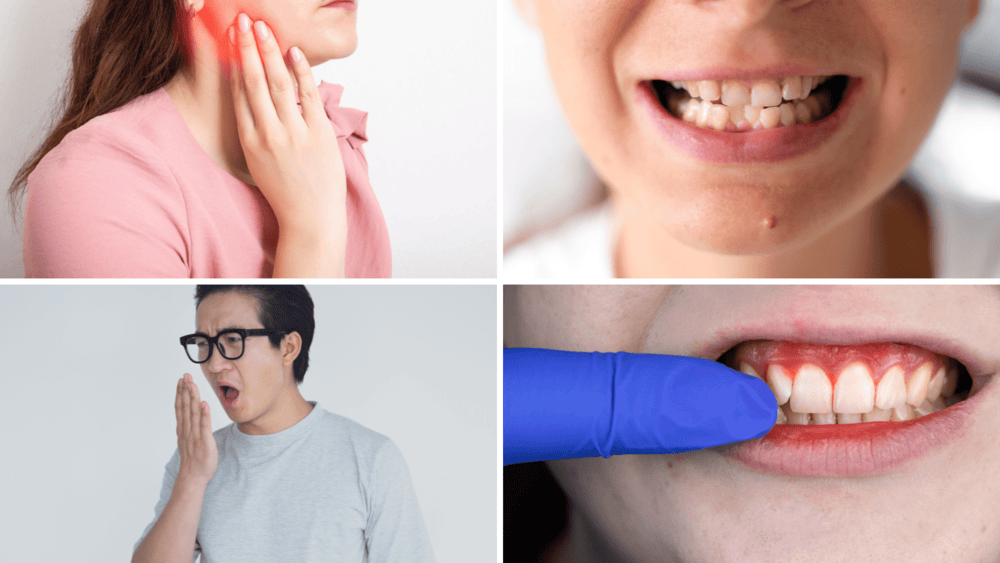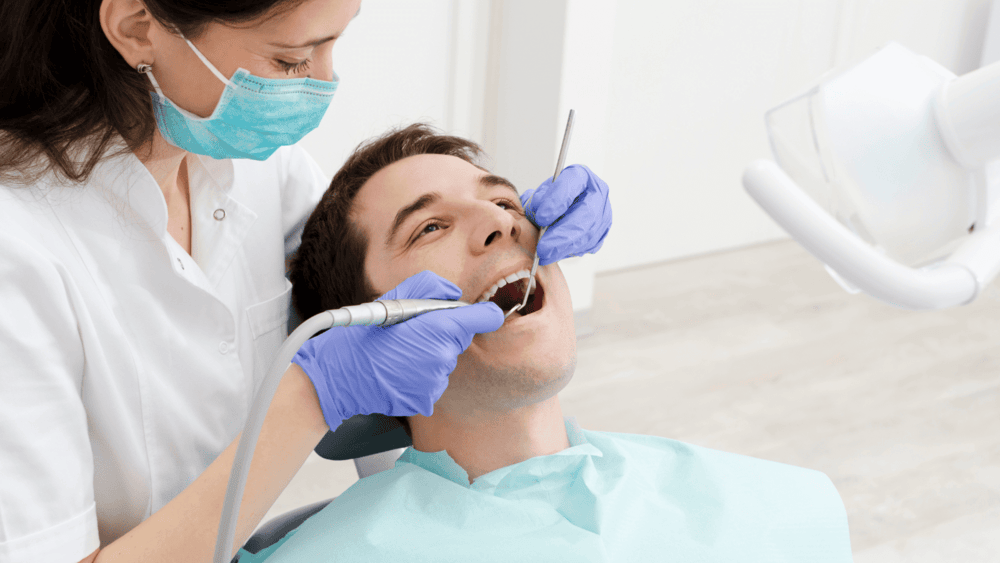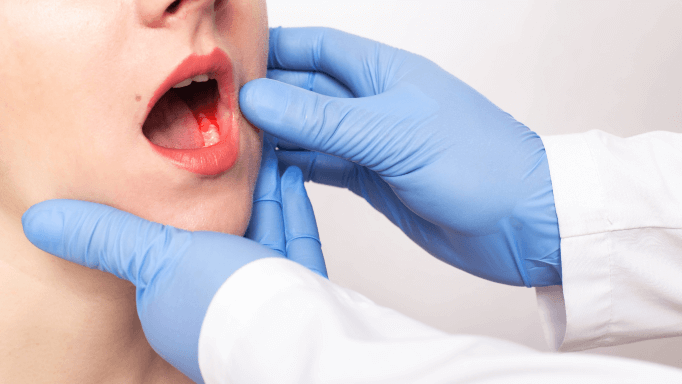Gum disease is something that many people don’t think about, but it can have serious consequences. Left untreated, it can lead to tooth loss and other medical issues. In this blog post, we’ll take a look at what gum disease is, what causes it, and what you can do to prevent it.
What is Gum Disease?

Gum disease, also called periodontal disease, is a serious infection of the gums and tissues that support your teeth. It is one of the leading causes of tooth loss in adults.
Gum disease begins when plaque, a sticky film of food and bacteria, builds up on your teeth. If plaque is not removed, it turns into tartar (calculus). Tartar irritates your gums, making them red, swollen and more likely to bleed.
As the disease progresses, the gums pull away from the teeth and form spaces (called pockets) that become infected. The bones and tissues that support the teeth can be destroyed. If not treated, gum disease can lead to tooth loss.
Gum disease is usually painless, so you may not know you have it. That’s why regular dental checkups and cleanings are important. Your dentist or dental hygienist can detect early signs of gum disease and help you prevent it from getting worse.
There are two main types of gum disease: gingivitis and periodontitis.
Gingivitis is the early stage of gum disease. It usually can be reversed with good oral hygiene.
Periodontitis is the more serious form of gum disease. It occurs when the gums and bone surrounding the teeth are destroyed. Periodontitis is a major cause of tooth loss in adults.
What Are The Symptoms Of Gum Disease?

Gum disease is a very common dental problem, and it can affect people of all ages. It is important to be aware of the symptoms of gum disease so that you can seek treatment as soon as possible.
The most common symptom of gum disease is bleeding gums. This can happen when you brush your teeth or floss your teeth. You may also notice that your gums are red, swollen, and tender. These symptoms can also be a sign of other dental problems, so it is important to see a dentist to rule out other causes.
Another symptom of gum disease is receding gums. This means that your gums are pulling away from your teeth. This can make your teeth look longer than they actually are. You may also have gaps between your teeth that you did not have before.
What Are The Causes Of Gum Disease?

Gum disease is a serious infection of the gums that can lead to tooth loss. It is caused by bacteria that build up on teeth and gums. Gum disease is a leading cause of tooth loss in adults.
The symptoms of gum disease include:
– Bleeding gums
– Swollen gums
– Red gums
– Receding gums
– Loose teeth
– Bad breath
If you have any of these symptoms, you should see a dentist right away. Gum disease is treatable, but it is important to catch it early.
How Is Gum Disease Diagnosed?

When you visit the dentist, they will usually ask if you have any concerns about your oral health. If you mention bleeding gums, they will likely want to take a closer look.
Gum disease is diagnosed through a visual and tactile examination of your gums. The dentist or hygienist will look for any inflammation or redness and feel for any pockets around the teeth. They may also use a small mirror to look at the back of your mouth.
If they suspect you have gum disease, they may take X-rays to get a better view of your teeth and gums. They may also take a small sample of tissue from your gums to test for bacteria.
How Is Gum Disease Treated?

Gum disease, also known as periodontal disease, is a serious infection of the gums and tissues that support your teeth. If left untreated, gum disease can lead to tooth loss.
Gum disease is treated by removing the plaque and tartar from your teeth and gums. This process is called scaling and root planning. Scaling means removing the plaque and tartar from above and below the gum line. Root planning means smoothing out the rough spots on the roots of your teeth where the gum disease has started.
After your teeth have been scaled and root planed, your dentist may recommend a mouth rinse or antibiotic gel to help control the infection. In some cases, surgery may be necessary to treat gum disease.
Treatment for gum disease includes:
– Brushing and flossing regularly
– Eating a healthy diet
– Quitting smoking
– Using mouthwashes
– Getting regular dental checkups and cleanings
What Are The Complications Of Gum Disease?
The most common complication of gum disease is tooth loss. As the gums become more and more damaged, they can start to pull away from the teeth. This can lead to the teeth becoming loose and eventually falling out. Gum disease can also cause other problems, such as:
Bad breath: As the gums become damaged, they can start to produce a foul odor. This can be embarrassing and make it difficult to socialize.
Pain: Damaged gums can be very painful. This can make it difficult to eat, brush your teeth, and even talk.
Infection: If the gum disease is not treated, it can lead to an infection in the gums. This can be very dangerous and even lead to death.
Prevention of Gum Disease

When it comes to our oral health, we often focus on our teeth. We make sure to brush and floss regularly, and see the dentist for regular cleanings. However, it’s important to remember that our gums are just as important as our teeth!
Gum disease is a serious condition that can lead to tooth loss, and it’s important to take steps to prevent it. Here are some tips for preventing gum disease:
– Brush your teeth twice a day with a soft-bristled toothbrush.
– Floss daily.
– Visit your dentist regularly for professional cleanings and checkups.
– Don’t smoke.
– Eat a healthy diet.
– Manage your stress levels.
If you’re concerned about gum disease, talk to your dentist. They can help you identify the early signs and recommend treatment options.

